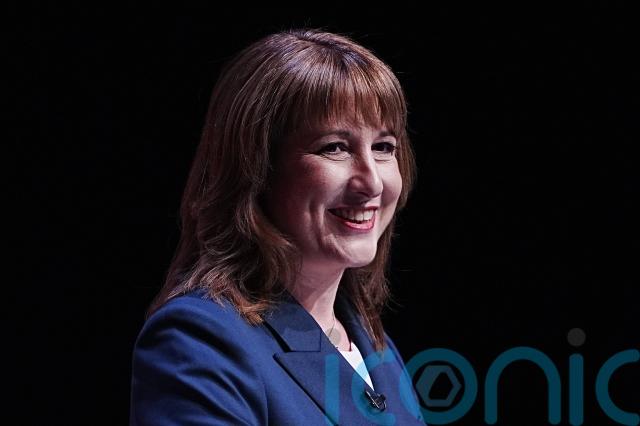
Taxes on alcoholic beverages should be increased to address a “productivity crisis” caused by an entrenched workplace drinking culture, a think tank has said.
Nearly one in three workers overall admitted they had called in sick after drinking at work events in the past year, while 43% of 18 to 24-year-olds said they had done so, a survey by the Institute for Public Policy Research (IPPR) found.
In further evidence that Gen Z employees are disproportionately affected by workplace alcohol harm, the report said more than a third of young people said they felt pressured into drinking to “fit in” or progress their career.
More than one in five of all employees surveyed said they had worked with a hangover, and 29% said they had noticed colleagues being “tired or sluggish” after drinking.

Ahead of Rachel Reeves setting out her economic plans when she delivers the autumn Budget next month, IPPR said action is vital to address the damaging impact of work-related drinking and subsequent productivity problems across all sectors.
The think tank called on the Government to reintroduce the alcohol duty escalator, which was established by Labour in 2008 and scrapped by the Conservatives in 2014.
The mechanism increased all alcohol duty rates by 2% above the rate of inflation each year.
IPPR also said the Government should take action on the “cheapest, strongest drinks which cause the most harm” by standardising duty rates across all alcohol products with the same level of alcohol by volume.
A minimum unit price on all alcohol, which has been implemented in Scotland and Wales, could also be set in England, the report said.
The Government increased alcohol duty rates in February after they were frozen in the previous two years by the Conservatives.
Health organisations have called for a new national alcohol strategy to limit harm, with the last one published in 2012, but IPPR said the impact of workers routinely drinking alcohol is undermining productivity and stifling growth.
Jamie O’Halloran, senior research fellow at IPPR, said urgent measures are needed.
He said: “We often think of alcohol harm as a public health issue, but this research shows it’s a national economic problem.
“When nearly half of young professionals are calling in sick after workplace drinking, it’s not just a hangover, it’s a productivity crisis.
“If the Government is serious about growth, it needs to take alcohol harm seriously too.”
The report found that most employers are seen as doing too little to address a workplace drinking culture.
More than half of workers surveyed said their employer had not provided any guidance, training, or inclusive alternatives to events featuring alcohol.
But 73% of workers said they believe employers have a responsibility to reduce alcohol harm, representing “a clear gap between expectation and action”.
Sebastian Rees, head of health at IPPR, appealed to employers to take action on the issue.
He said: “Employers have a huge opportunity here.
“By shifting away from alcohol-centric cultures and offering real support, they can boost wellbeing, improve performance, and build more inclusive workplaces.
“This isn’t about banning drinks — it’s about giving people the choice to thrive without pressure. The evidence is clear: doing nothing is costing us all.”
The report acknowledged that increasing the cost of alcohol products could be unpopular with the public and a political risk.
It added that “sustained” lobbying of policymakers by the alcohol industry focuses on the sector’s large contribution to the economy, cited as tens of billions of pounds per year, and jobs supported by the sector.
But the IPPR said this contribution could be overstated as most of these jobs are often part-time and “poorly paid”.
The report’s findings were based on a survey of 2,083 employees across the UK.
A Government spokesperson said: “As part of our 10 Year Health Plan, we are supporting people to make healthier choices through our shift from sickness to prevention as we build an NHS fit for the future.
“This includes committing to introducing a mandatory requirement for alcoholic drinks to display consistent nutritional information and health warning messages.
“The Government has also provided an additional £310 million to improve drug and alcohol treatment services and wider recovery support, including on housing and employment help.”
Emma McClarkin, chief executive of the British Beer & Pub Association, called on Rachel Reeves to cut duties on alcohol, warning increases would be “catastrophic” for beer producers and pubs.
She said: “UK beer duty is already one of the highest in Europe at three times the EU average and ten times that charged in Spain and Germany.
“The UK’s current alcohol duty regime incentivises production of lower strength products combined with significant industry investment has resulted in the widest choice and availability of low and no alcohol beers for consumers ever.
“Increasing alcohol duty at a time when the beer and pubs sectors are facing the worst economic pressures ever seen would be nothing short of catastrophic and with wider ramifications for communities throughout the UK and the national economy, which is why the Chancellor must deliver a beer duty cut and fulfil the promise of meaningful business rates reform at this budget to reduce the cost of doing business and encourage growth and investment.”
Subscribe or register today to discover more from DonegalLive.ie
Buy the e-paper of the Donegal Democrat, Donegal People's Press, Donegal Post and Inish Times here for instant access to Donegal's premier news titles.
Keep up with the latest news from Donegal with our daily newsletter featuring the most important stories of the day delivered to your inbox every evening at 5pm.